What's behind President Gustavo Petro's recent attacks on the Supreme Court, business leaders, his ministers, and Francia Márquez?

The presidential address and the subsequent televised cabinet meeting on Tuesday night—which aired for nearly five hours—generated renewed political controversy in the country and widespread rejection of President Gustavo Petro 's statements. He lashed out at the media, the courts, business leaders, the EPS (Employee Services), his own cabinet, and other sectors. The president's tone also raised alarm bells, less than a year before the congressional and presidential elections.
In his televised appearances—which were filled with controversial, if not inaccurate, statements—Petro maintained that Colombia's healthcare system is supposedly one of the worst in the world, contradicting international studies that have recognized the country's progress in coverage and services since the 1990s. He also ignored assessments by oversight bodies on the effects of his government's interventions in the system.
He also accused the Keralty Group, owner of the intervened Sanitas EPS, of committing "crimes" in Colombia; he said the EPS debt supposedly reaches 100 billion pesos (a figure that the Ministry of Health itself estimated at 32.9 billion pesos this Wednesday) and threatened a total state intervention of the system if Congress does not approve his controversial health reform.
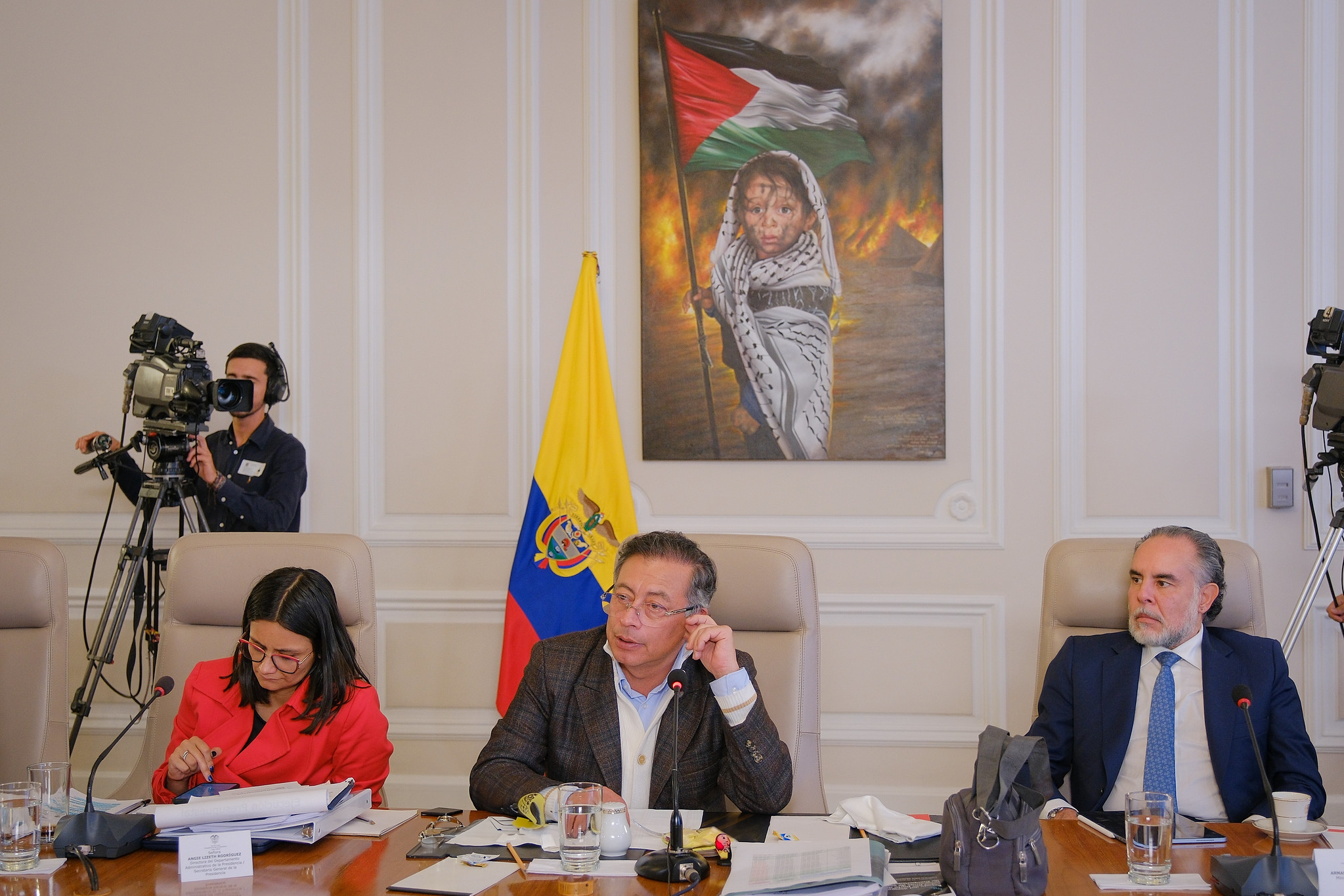
President Gustavo Petro during Tuesday's cabinet meeting. Photo: Ovidio Gonzalez. Presidency
He accused the media of committing "the worst atrocities against Colombians' right to information" due to their coverage of the health crisis.
He also lashed out at the courts, particularly the Constitutional Court for its recent ruling overturning the Sanitas administration; and at the president of the Council of State, Luis Alberto Álvarez, for his criticism of the decree by which the Executive branch changed the way in which the writs of protection filed against him were reviewed, which now go to circuit court judges.
"A magistrate, president of the Council of State, just came out and said that, for convenience, the decree cannot be the one that restores the Constitution (...) How so? So, prohibiting judges from supervising, for or against, any citizen who wants to supervise the President... What kind of democracy? Is this a monarchy?" the president said.
“This repetitive and obsessive behavior by the President against the Judicial Branch is concerning and should deserve the repudiation and rejection not only of the legal community and academia, but also of all citizens. It tramples on one of the mandates delegated to him by the Constitution, which is precisely focused on representing national unity. Furthermore, it seriously undermines one of the fundamental principles of any democracy: respect for judicial autonomy and independence,” said Hernando Herrera, director of the Excellence in Justice Corporation (CEJ).
He accused current and former ministers of betraying him and predicted a new ministerial shakeup. He was particularly harsh on Vice President Francia Márquez, who is increasingly alienated from his 2022 ticket, for her opposition to the appointments of porn actors Juan Carlos Florián and Amaranta Hank to the Ministry of Equality. "No one who is Black is going to tell me that a porn actor who founded the Paris sex workers' union should be excluded," was one of his most controversial remarks.
“What happened is regrettable. The separation of powers is an essential principle of any democracy; it's its backbone. The President symbolizes national unity; he can be controversial, but not in this way. This has recently happened with the Council of State and the Constitutional Court; it also seems to be happening with the Attorney General he nominated. There's cause for concern about the President's lack of knowledge of the judiciary; I don't see a recent precedent like this for an attack on the judiciary,” said Alfonso Gómez Méndez, former Attorney General, regarding the president's statements.
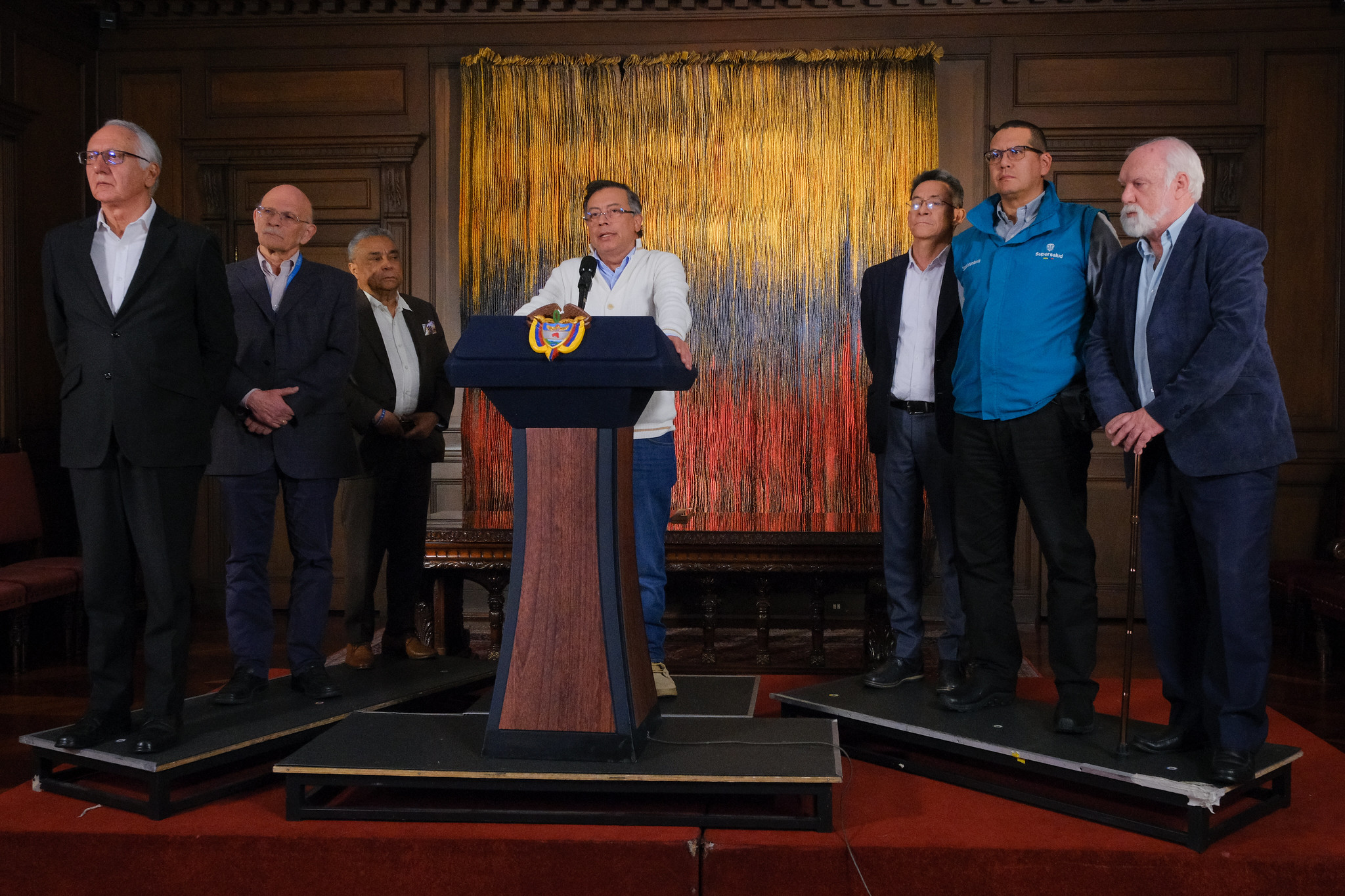
Presidential address by Gustavo Petro. Photo: Presidency
The reactions, except within his own ranks, were harsh toward the president.
Former Education Minister Alejandro Gaviria asserted that, beyond the president's inconsistencies during his speech, it was "a lying exposition about the health crisis. He was never clear about the sources of the figures. He mentioned a figure of 100 billion euros in debt owed by the EPSs without explanation, concocted, speculative, and meaningless. He mentioned that the debts of the intervened EPSs had decreased; the Supersalud figures say otherwise. He seemed unaware that his government had intervened in the EPS Famisanar. He ignored the worsening of all the system's indicators during his administration. He omitted, for example, the substantial increase in legal actions. He attacked the arguments of the Constitutional Court without figures. He made accusations of corruption and theft when there are no open fiscal or criminal investigations."
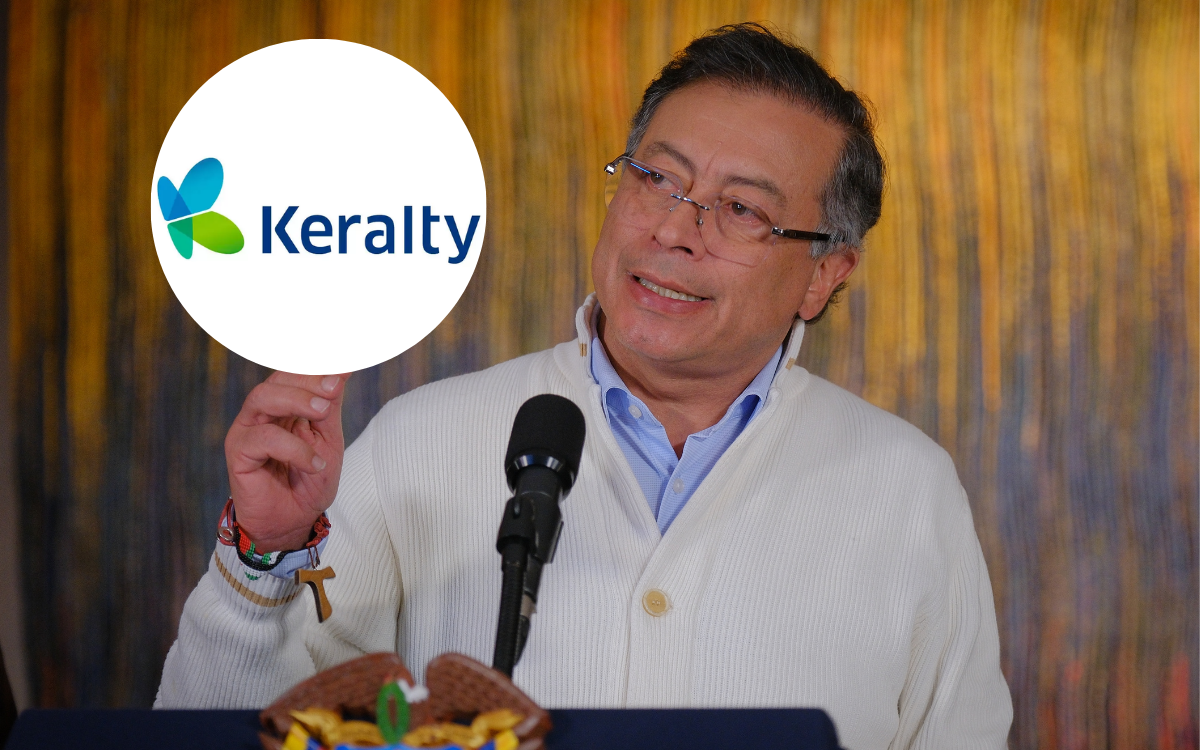
Gustavo Petro - Keralty Photo: Presidency - Private Archive
Presidential candidate Claudia López said, “It's regrettable what has become of the hope for change in Colombia. Healthcare has been destroyed, gas and energy are extremely expensive, insecurity and politicking are rampant, and the display of decadence and the victim narrative is on display,” she said, referring to Petro's statements.
Opposition criticism after the presidential speech The opposition also criticized the president's messages, and a response to his speech is being prepared, which they hope to broadcast this Thursday night. The idea is to contrast the figures the president provided.
“In Gustavo Petro's most recent speech, not only was the concept of expropriation romanticized—when referring to the electromagnetic spectrum—he also distorted the Comptroller General's Office's most recent report on the system's crisis and diverted attention from the Health Superintendency's mismanagement of the intervened health care systems. It was a regrettable speech, in which there was no mea culpa or acknowledgment of the deliberate underfunding of the model, but rather a threat to extend the interventions and cuts to what remains standing,” said Senator Carlos Fernando Motoa of Cambio Radical.
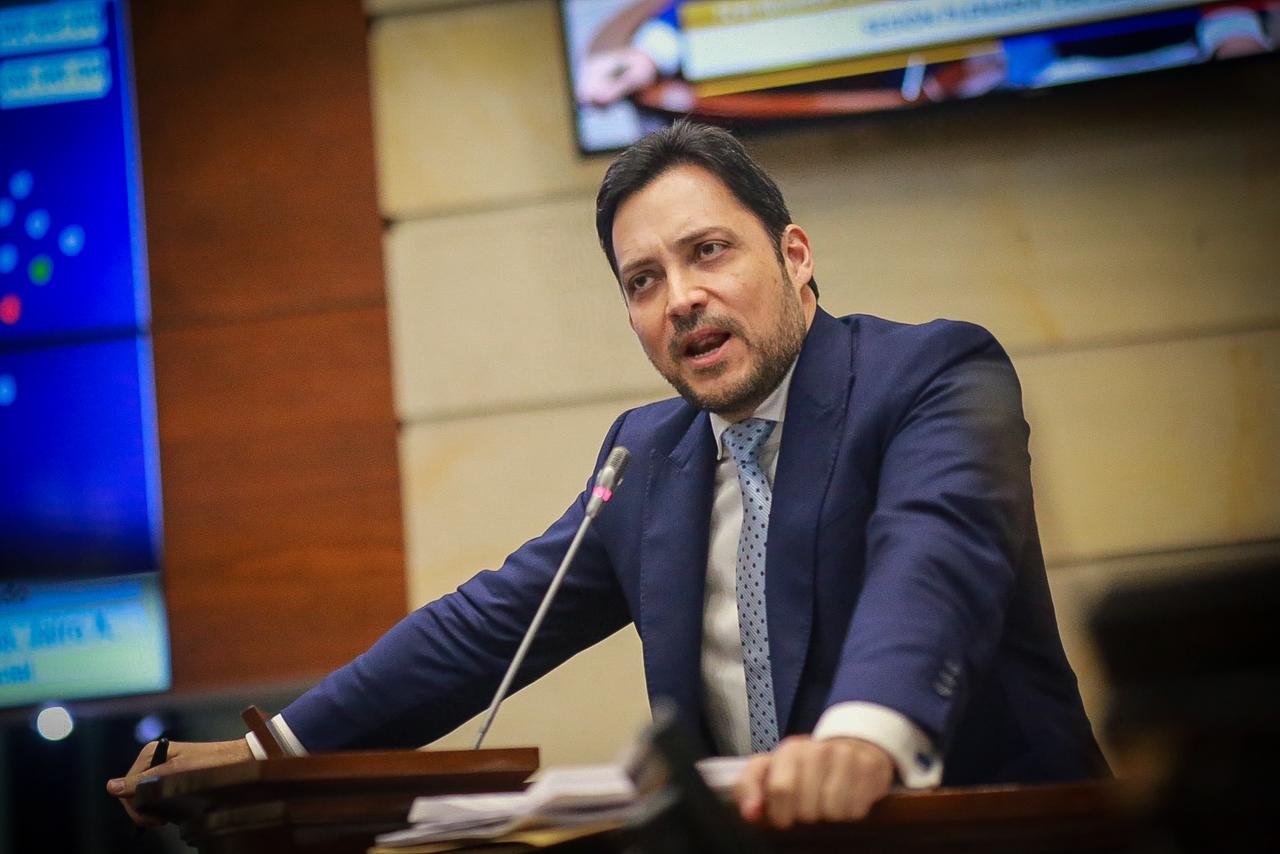
Carlos Fernando Motoa, senator of Cambio Radical (Radical Change) Photo: Senate Press
"There's a truth the people can't ignore: if they haven't achieved this in three years, rotating ministers over and over again, do they really believe that now, with time on their hands, they'll achieve what they couldn't build with stability, leadership, and consistency?" said Marelen Castillo, a representative of the League of Anti-Corruption Governors.
Other sectors also questioned the statements about "blacks," which they described as racist, and criticized the silence of the Historic Pact.
Alfredo Saade comes to the defense of President Gustavo Petro The government came to the president's defense and attacked the opposition, accusing them of diverting attention.
"A large part of the opposition is confronting the president, criticizing his rhetorical aesthetics and his way of organizing his discourse, but I challenge them: show with data where he's wrong, prove that the Comptroller's Office is wrong and that there's no embezzlement. They're experts at diverting attention and creating plots to deceive the unwary," said Chief of Staff Alfredo Saade.
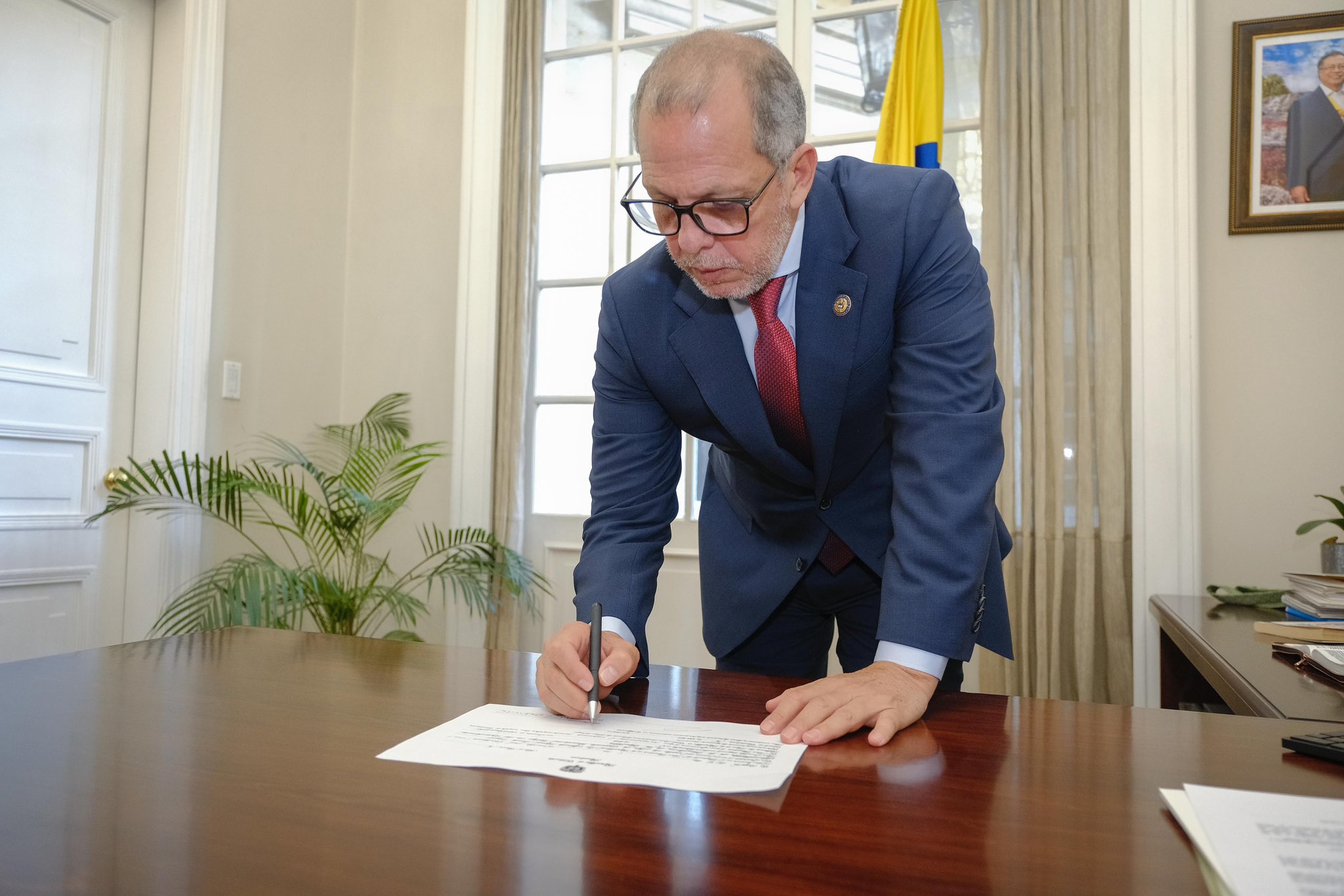
Chief of Staff Alfredo Saade. Photo: Private archive
Meanwhile, analysts believe that behind the multiple fronts opened by the president lies frustration at seeing the government coming to an end and the failure to achieve the major transformations he dreamed of.
"I don't think he's done a complete analysis. I believe more in the frustration of assuming that such an ambitious transformation plan could be achieved in a short time. He has problems with the gradual approach, despite his sound readings and observations about the country's problems," asserted political scientist Alejandro Chala.
Meanwhile, Fernando Posada, a columnist for this newspaper, insisted that, in addition to the alarms raised by the messages sent by the president, the people defending him are worrying.
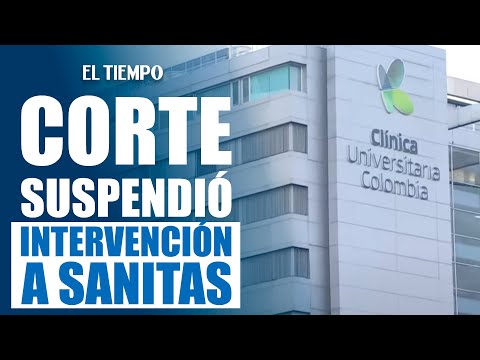
The Court annulled the government's intervention in Sanitas. Photo:
"Yesterday's speech isn't as delirious as the argumentative acrobatics of those who insist on defending Petro and his bungling rhetoric. What happened on Tuesday was a decadent and worrying spectacle. But the argumentative spectacle of his defenders today is truly delirious," the analyst asserted.
For now, according to the head of state's announcement, the country is preparing for a new ministerial shakeup—this has already been the 52nd since the government took office—and one of the big questions is who Petro will face in the final stretch of his term.
eltiempo





